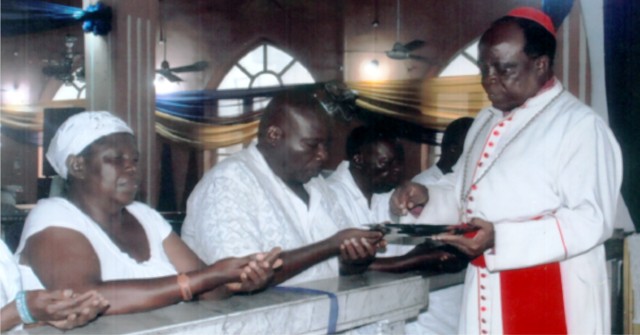Business
Council Boss Charges Social Media Users On Objectivity

Social media operators have been charged to always project the society positively and be objective rather than being sentimental.
The Caretaker Committee Chairman of Ogu/Bolo Local Government Area of Rivers State, Rev Franscis Ada Ebenezer gave the charge when members of Ogu Town Social Media Team paid him a courtesy visit in his office at Ogu, headquarters of the local government area.
Ebenezer said they should not relent in their efforts at disseminating first-hand information to the people of the state, the local government and those in the diaspore and described their job as a sacrifice for better society and mankind.
The Ogu/Bolo LGA boss commended the team for its good jobs in the area but charged them to do more by informing the masses of the activities of the council in its short time in office, urging them to keep up the spirit.
According to him, “keep doing what you know best to boost the activities in the communities and the local government area for our people in the diaspora to appreciate”, adding that they should see their activities as part of partnership with the LGA and to the glory of God.
The CTC boss promised to look into their challenges.
Earlier, the Co-ordinator of the team, Japhet George and the Secretary, Jonathan George said the group is a non-political but out to inform the public of activities in Ogu community and indeed the entire LGA.
They thank Governor, Chief Nyesom Wike for recognising social media in his scheme of appointments as well as rebuilding Government Secondary School Ogu among others and promised to work with the council to project its image and activities of the area, while also thanking him for his open-door administration.
Collins Barasimeye
Transport
Automated Points Concession : FAAN Workers Gave 72hrs To Revise Decisions In PH

Transport
FAAN Announces Pick-Up Points for Go-Cashless Cards

Business
Fidelity Bank To Empower Women With Sustainable Entrepreneurship Skills, HAP2.0
-
Politics4 days ago
2027: NIGERIANS FAULT INEC ON DIGITAL MEMBERSHIP REGISTER DIRECTIVE
-

 Environment4 days ago
Environment4 days agoLAWMA Director Says Sweeping Reforms Have Improved Waste Collection
-
Politics4 days ago
LP Crisis: Ex-NWC Member Dumps Dumps Abure Faction
-

 Politics4 days ago
Politics4 days agoUmahi Dismisses Allegations On Social Media, Insists On Projects Delivery
-

 Sports4 days ago
Sports4 days agoAbia Not Sure To Secure continental Ticket
-
Politics4 days ago
NATASHA ELECTRIC VEHICLES INITIATIVE IN KOGI CENTRAL
-
Sports4 days ago
La Liga: Yamal Records First Career Hat-trick
-
Politics4 days ago
IT’S A LIE, G-5 GOVS DIDN’T WIN ELECTION FOR TINUBU – SOWUNMI

